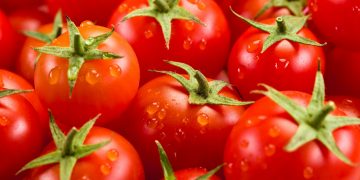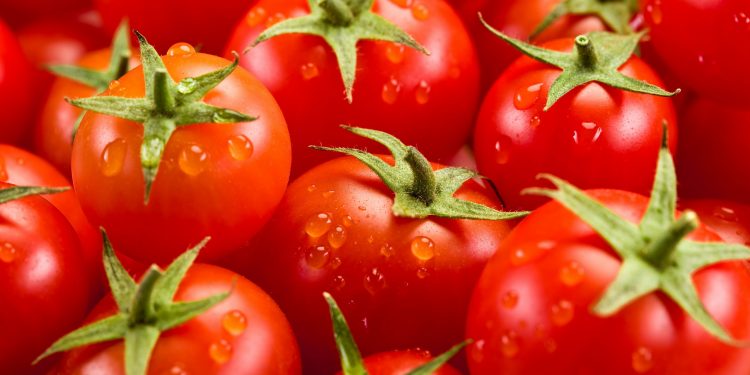Understanding the Tomato Shortage and Its Implications for Nigeria’s Agricultural Sector
In Abuja, Nigeria, Ebeano Supermarket has come under fire for significantly increasing its tomato prices, sparking outrage among consumers and highlighting a severe scarcity of tomatoes driven by the recent “Tomato Ebola” outbreak. This situation not only affects local food prices but also reflects broader challenges and opportunities within Nigeria’s agricultural sector.
The Price Surge: A Closer Look at Ebeano Supermarket’s Pricing Strategy
Recently, Ebeano Supermarket has drawn criticism for raising the price of tomatoes to N6,950 (€4.87) for just three tomatoes. This dramatic increase has generated substantial public discontent and sparked a conversation about the ethics of pricing during times of scarcity. The supermarket’s price hike is a direct response to the severe shortage of tomatoes exacerbated by the ongoing “Tomato Ebola” outbreak.
Factors Behind the Tomato Shortage
- “Tomato Ebola” Outbreak The primary driver behind the tomato shortage is the “Tomato Ebola” outbreak, which has ravaged tomato crops in Northern Nigeria. This disease, caused by a combination of pests and pathogens, has led to extensive crop damage and a significant reduction in tomato yields. The outbreak has been so severe that the Nigerian government has declared a state of emergency in some regions to manage the crisis.
- Impact on Tomato and Pepper Supply Chains The destruction of tomato crops has severely disrupted the supply chains for tomatoes and peppers. As a result, the prices of these essential vegetables have skyrocketed, with retailers like Ebeano Supermarket adjusting prices to reflect the scarcity of available products. This price increase reflects the broader market trend where high demand and low supply lead to inflation.
- Consumer Reactions and Social Media Outrage The exorbitant prices at Ebeano Supermarket have sparked widespread outrage on social media platforms. Consumers have expressed their frustration with the high prices through various online channels, highlighting the discrepancy between the usual cost of tomatoes and the current inflated rates. This public outcry underscores the growing concern over food price inflation in Nigeria.
Broader Implications for Nigeria’s Agricultural Sector
The tomato scarcity crisis presents several significant implications for Nigeria’s agricultural sector:
- Agricultural Resilience and Disease Management The “Tomato Ebola” outbreak has exposed vulnerabilities in Nigeria’s agricultural systems, particularly in pest management and disease prevention. This crisis emphasizes the need for more effective agricultural practices and technologies to prevent future outbreaks and ensure crop resilience. There is a pressing need for improved pest control methods and research into disease-resistant tomato varieties.
- Opportunities for Innovation and Investment The current crisis presents numerous opportunities for innovation and investment within the agricultural sector. For entrepreneurs, agronomists, and researchers, there is potential to develop new technologies and strategies for pest management, disease prevention, and crop protection. Investment in these areas could lead to significant advancements in agricultural practices and contribute to long-term food security.
- Exploring Alternative Food Sources As the prices for tomatoes and peppers continue to rise, consumers are exploring alternative sources of these staples. This situation opens up opportunities for the development and promotion of alternative vegetables and spices. For those in the food industry, this represents a chance to diversify product offerings and explore new markets.
- Policy and Industry Collaboration The crisis highlights the need for coordinated efforts between government agencies, agricultural organizations, and the private sector. Effective policy measures and collaborative initiatives are essential for addressing the immediate challenges posed by the outbreak and for building a more resilient agricultural sector. This includes efforts to improve agricultural practices, support affected farmers, and stabilize food prices.
Conclusion
The recent price increase at Ebeano Supermarket in Abuja, driven by the “Tomato Ebola” outbreak, has brought attention to the severe tomato shortage and its impact on Nigeria’s food supply chain. This crisis not only underscores the vulnerabilities in Nigeria’s agricultural sector but also presents opportunities for innovation, investment, and policy development. For professionals in the agricultural industry, this situation offers both challenges and prospects for driving meaningful advancements in food security and agricultural resilience.































